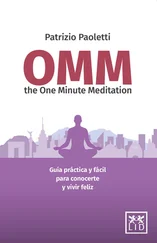‘Wow, how interesting,’ she smiled, cocking her head as if to suggest the weight of a thought, ‘I guess that’s because American culture is so dominant globally?’
‘No, Rachel, it’s because I’m American.’
Her face clouded with an expression of total confusion, almost bordering on disgust. ‘But you sound British. Were your parents British?’
‘No, we’re all-American Americans, here for centuries. My mother’s side was English, but they came over at the end of seventeenth century, and my father’s side, all of them Irish, arrived in the 1840s, like so many others.’
‘I just assumed because of the accent. .’
‘I don’t have a British accent. The British don’t think so either. To them I sound American.’
‘But you don’t, not at all.’
‘It’s a question of intonation. If you listen to my vowels, they’re entirely American. It’s just the phrasing and the emphases, maybe the vocabulary as well, that has drifted from origins.’
She was still shaking her head but by then I’d had quite enough of her insistence that I was not what I am, so I asserted in a rather English way — with an excess of understatement — that if we did not get to work there was little point in such meetings and at the end of the hour we would both feel the result was rather unsatisfactory. Thus, from a state of confusion, we moved on to Rachel’s chapter, which we discussed for the next forty-five minutes. She was relieved to hear I thought it needed very little work. Still, throughout the meeting, there was a look of puzzlement on her face, as though some part of her brain was continuing to think about the sound of my voice, the way I speak, listening for the roundness of my vowels, the vocabulary and idioms I use, and when she tried to put it together with her idea of what a fellow American sounds like — although one may be American in every sense and still not necessarily a first-language English speaker — she found I did not fit her paradigm of American-ness.
‘It’s not just intonation. I think it’s about cadence,’ she told me at the end of the hour, ‘it’s the cadences you use and the volume, which is softer than most Americans speak, and it’s also your constructions and vocabulary, you’re right, you have British-English constructions and words slip in that Americans just don’t use, which is why a lot of us assumed you must be British, and also of course because we know you just came from Oxford, so you have that origin story if you know what I mean—’
I nodded, but was distracted again by the same young man in Washington Square Park, pausing for an instant outside my window. It was impossible to see his face in the twilight, even with the park’s lamps on, but it was obvious he was standing there just long enough to check that I was still in my office. As Rachel was speaking, I stood up and closed the blinds.
‘—and because of that, because of your recent history, knowing where you came from and whatnot, and having seen you give that lecture last spring when you were here for the interviews and all, and you sounded really, really British then, probably because you’d just come from Oxford and hadn’t been around Americans very long, you know what I mean? Well, we just assumed, I mean I’m not the only one, other people must have mistaken you for British?’
‘Some, yes, but only strangers.’
What I meant to imply was that Rachel’s confusion could so easily have been dispelled if she had spent five minutes on my Faculty web page, where a brief academic biography makes my trajectory unambiguously clear. This, however, is something I have noticed in Rachel’s generation, and even more so in younger students: despite having all the world’s information available to them, they seem even more likely than earlier generations to leap to assumptions, or to wait for someone to explain to them what they have failed to understand or investigate for themselves, and in so failing have gone on living in a state of uncertainty or false belief. It surprised me at the time, but even in Oxford there were occasions when it became apparent in the course of a tutorial or supervision that a student had woefully misinterpreted some aspect of the work because he or she had not known the meaning of certain words, and despite having the Oxford English Dictionary freely accessible online, had failed to look up unfamiliar vocabulary, instead reading in so superficial a way that he or she had reached wildly erroneous conclusions about the text in question. I had hoped that in returning to America I would not find this same intellectual laziness, such absence of curiosity. I was, it has to be said, disappointed by Rachel’s failure to figure out that I was as American, probably much more and much longer American, as she. Frankly, I was more than a little pissed off and I thought of what the man had asked me in Caffè Paradiso on Saturday, whether the student who had failed to arrive was female and if she was attractive. No, I said to myself sitting before Rachel that Monday afternoon, she was well dressed and neatly groomed, but she was not attractive. Genetics had dealt her a rather poor hand. I am ashamed to admit her homeliness (a confusing word, meaning something entirely different in British English, almost the opposite of what it means in America) heightened the bitterness I felt as the hour drew to a close and she, this homely but very bright, very promising girl, felt compelled to tell me why I did not sound American to her untrained and largely untraveled ear.
As I showed her to the door, I turned and said, before thinking about the words or what their effect might be, ‘You know, Rachel, one of the great things about America, one of the reasons I wanted to come home to my country, is that anyone can speak any language in any possible accent and still be accorded the status of American.’
Rachel blushed and muttered something almost unintelligible, a kind of half apology that did not go far enough by half, as some British acquaintances of mine might have said.
‘Sorry,’ I said, ‘I didn’t quite hear that,’ which was true, although I could not help noticing she looked crushed, and in that moment I felt sick with myself. I was behaving badly in a way I had not in a very long time.
‘I’m sorry, Professor O’Keefe,’ she mumbled, ‘I find, I don’t know, I just — interacting with people is really difficult sometimes, because, I guess, I don’t find other people very transparent.’
‘You should move to Germany. Germans are very transparent. If they hate you, they’ll tell you.’
And with that she rustled off into the cold November night. I had not meant to speak with such vehemence, but as I did, little though Rachel knew it, I was thinking of an encounter I had at a High Table dinner at Exeter College a few years before, when the matter of my nationality arose for the umpteenth time. I had by then acquired dual citizenship, having done so for the pragmatic reasons that it made travel back and forth between Britain and America much easier, and so when a Fellow of the College, a woman my age born and bred in London, asked me where I was from, I said, ‘I’m American, but now I’m also British, I’m a dual citizen,’ and she shook her head and corrected me, saying, ‘No, no, no. You’re American.’ When I protested, insisting, ‘It’s more complicated than that, I’ve lived in Britain for a decade and have acculturated to a certain extent, and don’t have any plans to return to America,’ she again shook her head, scolding me, ‘No, you are American, first and last, and even if you spent the rest of your life here you would never be British.’ I was so irritated by the woman, a Professor of English whose own family were themselves Austrian immigrants to Britain in the 1930s, that I did not speak to her for the remainder of the meal, or for the drinks afterward in the Senior Common Room, and ignored her whenever we passed each other on the street in the months and years that followed. I could not imagine a similar conversation happening in America. I could not imagine a born and bred American saying to an immigrant who had been in the country legally for a decade or more, someone who had acquired American citizenship, that they were not and would never be American ; such a stance would be antithetical to the foundational concepts of American national identity.
Читать дальше












